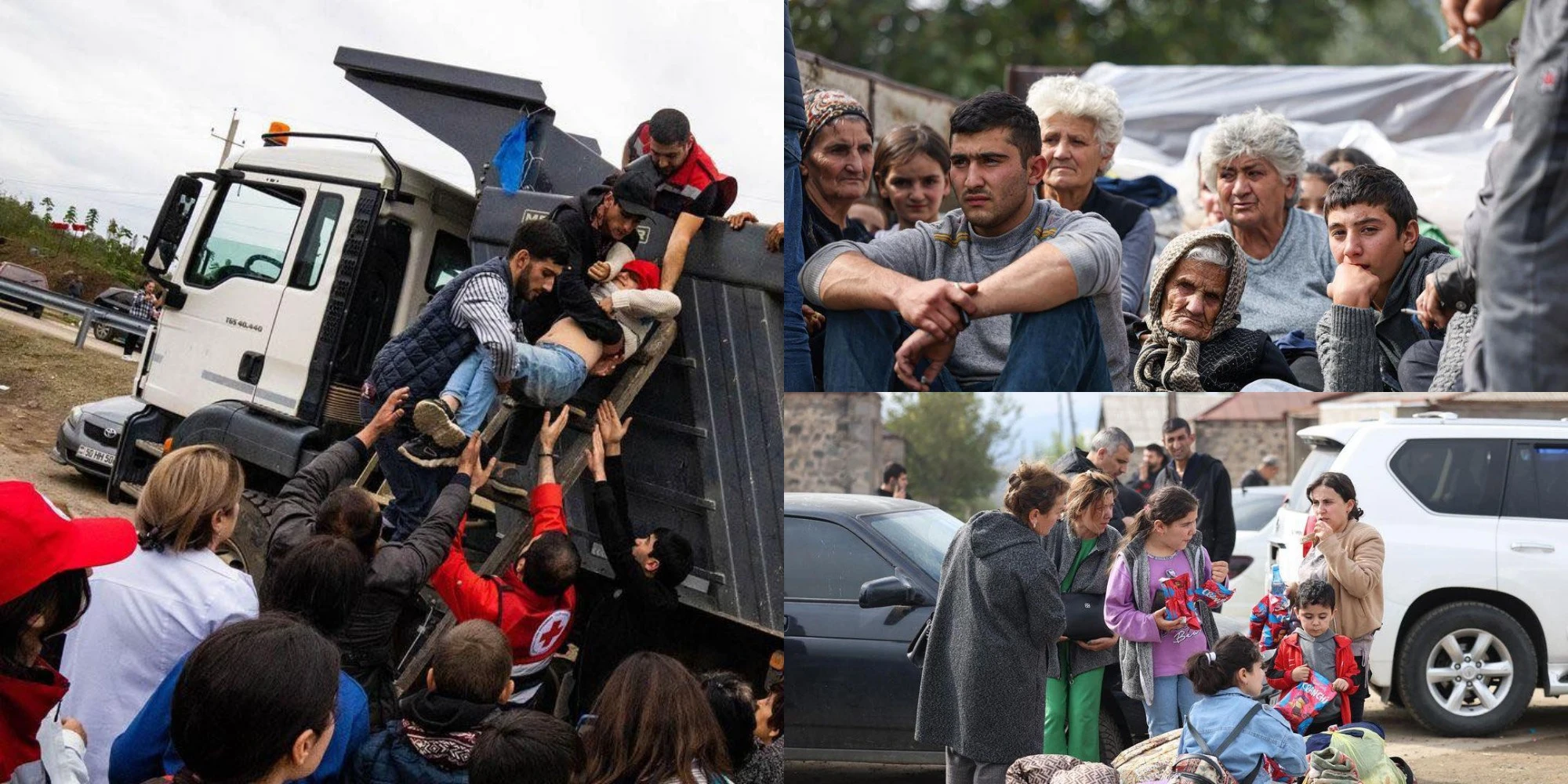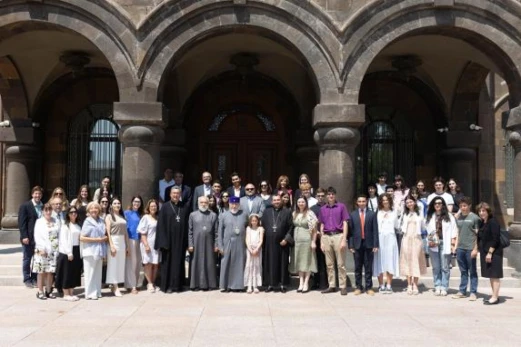Based on conversations with displaced Artsakh Armenians, information obtained from open sources, and months of research, the authors of the fact-finding report "Why are there no Armenians in Nagorno-Karabakh?" concluded that what happened to Artsakh Armenians is ethnic cleansing, and the instigators and implementers should be held criminally liable.
Freedom House, the International Partnership for Human Rights (IPHR), a Ukrainian organization specializing in the investigation of international crimes, several Armenian and leading human rights organizations were involved in the process of preparing the report.
In Brussels, the correspondent of "Armenpress" talked with one of the co-authors of the report, Simon Papuashvili, director of South Caucasus affairs of the "International Partnership for Human Rights" (IPHR) organization.
Papuashvili, referring to the process of preparation of the report, the conclusions made and their next steps, noted that they are going to apply to the international criminal court based on the obtained evidence packages, with the demand to bring the criminals to justice.
Simon Papuashvili presented in detail the toolkit with which it is possible to prosecute the leaders of Azerbaijan and the criminals involved in the crimes committed against Artsakh Armenians in the international justice system.
Your organization prepared a fact-finding report in cooperation with Freedom House and a number of other structures. How and why was the report "Why are there no Armenians in Nagorno-Karabakh?"
- I represent the international non-governmental organization "International Partnership for Human Rights" (IPHR), whose headquarters is in Brussels. We have regional offices in Georgia and Ukraine. We work in Eastern Europe, Russia, South Caucasus and Central Asia. Therefore, this is our target region and as an organization our mandate is to support the activities of local human rights groups and organizations.
We have long-established partnerships with several leading organizations of Armenian political society, with whom we have been working for more than a decade.
We were asked to carry out a program that would investigate international crimes committed in the context of the 2020 war, which we did. We followed the situation after the signing of the ceasefire agreement and from time to time collected facts of large-scale clashes that took place during the ceasefire. In October 2022, we organized a fact-finding mission to document the crimes committed by Azerbaijani forces on the borders of Armenia in September 2020.
Then we followed the impact of the blockade of Lachin Corridor on the population of Nagorno-Karabakh. When the occupation (ed. Nagorno Karabakh) by Azerbaijan took place on September 19, 2023, our Armenian partners turned to us and asked us to help them investigate what was happening in terms of the forced displacement of the population from Nagorno Karabakh. Together with our partners, we helped them develop a methodology for investigating forced displacements or ethnic cleansing. We have also helped to train about 25 representatives of Armenian civil society, who have been working since November last year to conduct interviews with displaced persons from Nagorno Karabakh.
About 6 organizations were involved in this fact-finding project, including our organization, Freedom House and a Ukrainian organization specializing in the investigation of international crimes, several Armenian and leading human rights organizations. More than 300 interviews were conducted with those displaced from Artsakh.
In parallel with this, we also collected information from open sources, more specifically, information about the destruction of Armenian cultural heritage in Artsakh, through the analysis of satellite images. We also collect what we call linkage evidence (ed. linkage evidence, which shows the connection between the perpetrators and the suspects).
It helps us identify which Azerbaijani units were involved at different times, which we studied to understand their general structure and to do what we as lawyers call attribution, attribution of crimes to specific individuals.
Based on the evidence we have examined, we can conclude that the events in question constitute a crime against humanity or a possible displacement of civilians.


